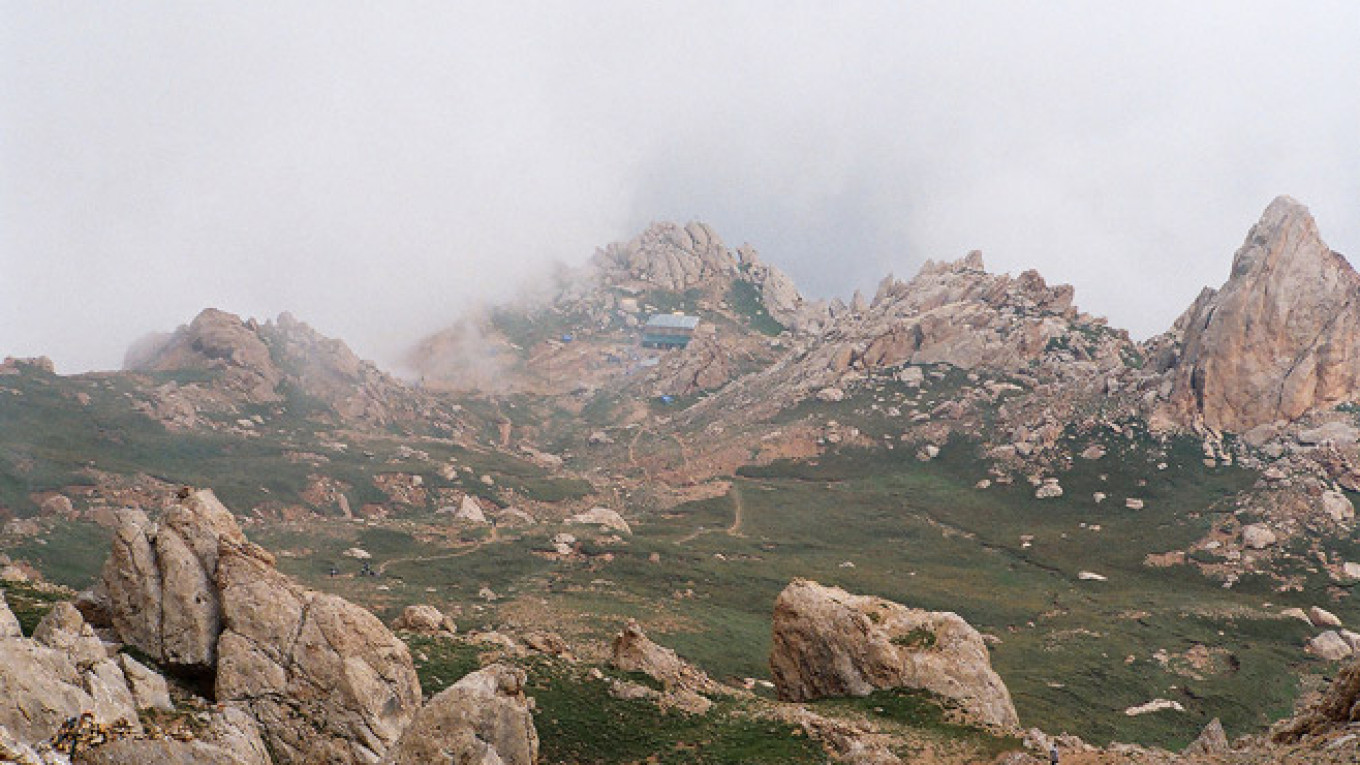Activists say a small village in Dagestan is the site of a mysterious raid by special forces that has seen residents ejected, homes damaged and several men "disappear."
A column of armored vehicles carrying special forces and police arrived in the village of Vremenny on Sept. 18 and immediately placed the village on lockdown, the human rights group Memorial has reported, citing residents. House-to-house searches and inspections of individual residents have reportedly remained ongoing since.
"We asked residents if anything had happened in the village recently that may have provoked the authorities — any clashes or fighting between insurgents and law enforcement, and they all said no," Tanya Lokshina of Human Rights Watch told The Moscow Times in a phone interview. Lokshina, along with activists from Memorial, had traveled to the village to prepare a report on the situation.
Dagestan has been plagued by a low-simmering insurgency for years, with clashes occurring regularly between police and Islamic militants seeking to establish a caliphate.
The village of Vremenny is located in the Untsukulsky district of Dagestan, the epicenter of counter-terrorism operations since at least March, when the district was declared a counter-terrorism zone.
When activists approached law enforcement officers to inquire about the raid, their questions were brushed aside, with retorts like "it's none of your business" or vague explanations such as "they're looking for rebels," Lokshina said.
A Bunker Uncovered?
Regional news outlet Novoye Delo reported on Monday that the operation has proven fruitful: Authorities discovered four secret underground bunkers used by insurgents in the village, according to the report.
In one case, the father of a jailed insurgent had made his basement available to other fighters as a makeshift bunker, Novoye Delo reported, citing an unidentified source in law enforcement. Counter-terrorism officers discovered weapons and explosives at the property, the report said.
No official statement on such a discovery could be found on the websites of the National Anti-Terrorism Committee or the Federal Security Service (FSB). A request for comment filed with the FSB remained unanswered by the time of publication.
Lokshina and Memorial activists expressed skepticism about the purported finds, citing accounts of local residents who claimed that the "bunkers" were actually ordinary basements.
Lokshina also said the duration of the raid was unusual for such an operation.
"If the reason really is to carry out a counter-insurgency operation and check every household, that could be done within one to two days," considering the village's small size, she said.
A day after arriving, special forces rounded up dozens of residents, loaded them into a bus and drove them to a local firehouse, where inspections were carried out into each resident, Lokshina said. Police and special forces checked documents, took fingerprints and DNA swabs, and photographed each resident before entering the data into a computer, Memorial cited witnesses as saying.
"When the process was finally finished, they [authorities] said: 'Fine, women and children can return to their homes, but all males have to leave straight away,' Lokshina said, adding that the men left without having taken any belongings with them.
"They really thought it would just take a few hours," she said.
Disappearances
According to Memorial's report, four men were detained after the firehouse inspection, three of whom have not been heard from since.
One of the four — identified by Memorial as Magomedzagid Kamilov — was found on the side of the road with a bag over his head several days after his detention, the report said. Kamilov, who re-emerged on the night of Sept. 25, told activists he did not know where he had been held.
"He's been intimidated, for sure, because he's not ready to talk [about what happened to him]. … If someone is found dumped by the roadside with a bag over his head, there is no shadow of a doubt that this individual has been tortured," Lokshina said.
According to residents of the village with whom Lokshina spoke, authorities are continuing to scour local homes, she said.
"The wives [of the men who were told to leave the village] keep calling them from Vremenny and saying there is shooting at night and they don't know what is happening," Lokshina said.
Contact the author at a.quinn@imedia.ru
A Message from The Moscow Times:
Dear readers,
We are facing unprecedented challenges. Russia's Prosecutor General's Office has designated The Moscow Times as an "undesirable" organization, criminalizing our work and putting our staff at risk of prosecution. This follows our earlier unjust labeling as a "foreign agent."
These actions are direct attempts to silence independent journalism in Russia. The authorities claim our work "discredits the decisions of the Russian leadership." We see things differently: we strive to provide accurate, unbiased reporting on Russia.
We, the journalists of The Moscow Times, refuse to be silenced. But to continue our work, we need your help.
Your support, no matter how small, makes a world of difference. If you can, please support us monthly starting from just $2. It's quick to set up, and every contribution makes a significant impact.
By supporting The Moscow Times, you're defending open, independent journalism in the face of repression. Thank you for standing with us.
Remind me later.






